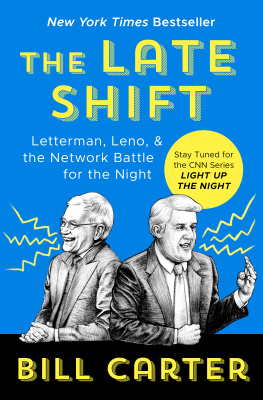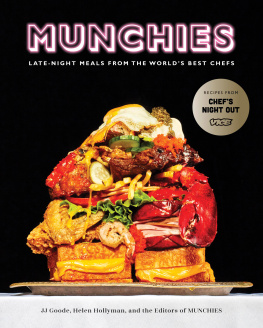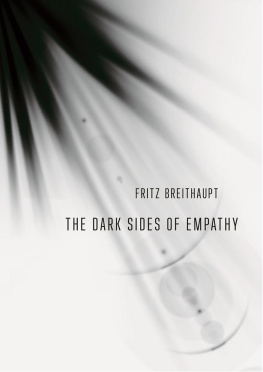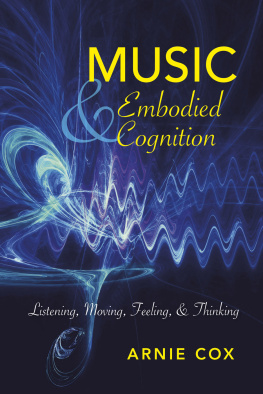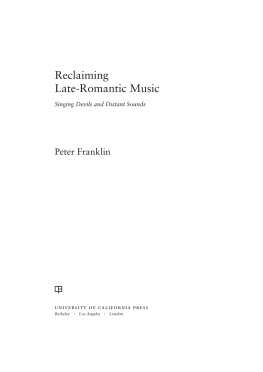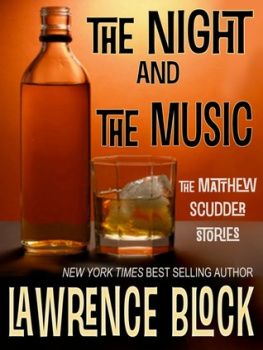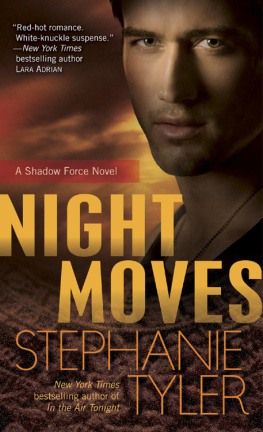Breithaupt Don - Night moves: pop music in the late 70s
Here you can read online Breithaupt Don - Night moves: pop music in the late 70s full text of the book (entire story) in english for free. Download pdf and epub, get meaning, cover and reviews about this ebook. City: New York;NY, year: 2014, publisher: St. Martins Griffin, genre: Non-fiction. Description of the work, (preface) as well as reviews are available. Best literature library LitArk.com created for fans of good reading and offers a wide selection of genres:
Romance novel
Science fiction
Adventure
Detective
Science
History
Home and family
Prose
Art
Politics
Computer
Non-fiction
Religion
Business
Children
Humor
Choose a favorite category and find really read worthwhile books. Enjoy immersion in the world of imagination, feel the emotions of the characters or learn something new for yourself, make an fascinating discovery.

- Book:Night moves: pop music in the late 70s
- Author:
- Publisher:St. Martins Griffin
- Genre:
- Year:2014
- City:New York;NY
- Rating:4 / 5
- Favourites:Add to favourites
- Your mark:
- 80
- 1
- 2
- 3
- 4
- 5
Night moves: pop music in the late 70s: summary, description and annotation
We offer to read an annotation, description, summary or preface (depends on what the author of the book "Night moves: pop music in the late 70s" wrote himself). If you haven't found the necessary information about the book — write in the comments, we will try to find it.
Night moves: pop music in the late 70s — read online for free the complete book (whole text) full work
Below is the text of the book, divided by pages. System saving the place of the last page read, allows you to conveniently read the book "Night moves: pop music in the late 70s" online for free, without having to search again every time where you left off. Put a bookmark, and you can go to the page where you finished reading at any time.
Font size:
Interval:
Bookmark:
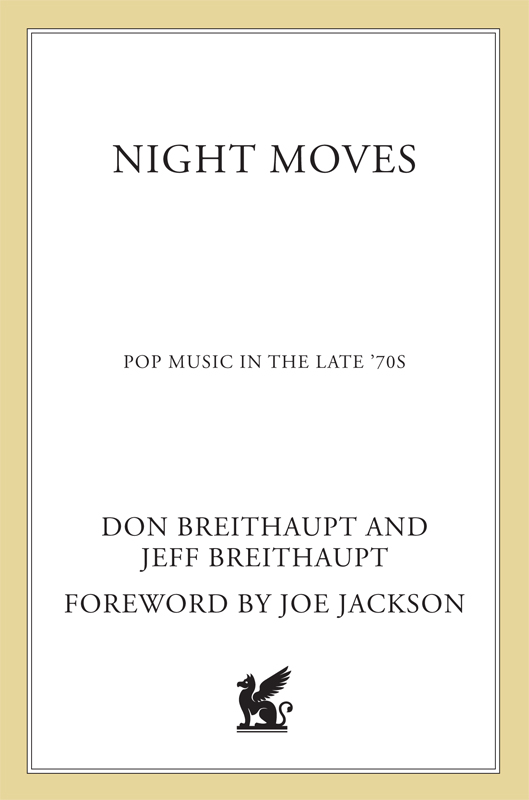

The author and publisher have provided this e-book to you for your personal use only. You may not make this e-book publicly available in any way. Copyright infringement is against the law. If you believe the copy of this e-book you are reading infringes on the authors copyright, please notify the publisher at: us.macmillanusa.com/piracy.
Contents
For Rikki and the boys, my deeper music
D.B.
For Shelley and her big, beautiful spirit
J.B.
Acknowledgments
Thanks to Mom and Dad for everything, but especially for relinquishing control of the car radio for an entire decade; Ross, this endeavors silent partner; Shelley and Rikki for their love and support (and input); Marian Lizzi for her patience, enthusiasm, and insightful edits; Joe Jackson; Clair Moritz; Donald Lehr; Dave Donald; Paul Kellogg; Miss Walton; Joel Whitburn; BPI Communications, Inc.; NARAS; the record labels.
Put on the radio. Light up a cigarette. You are a normal citizen. Fiddle among the stations. Find a good tune.
Leonard Cohen
Death of a Ladys Man, 1978
Preface
Eighteen years gives you plenty of time to change your mind, especially in an area like your musical taste, which is, almost by definition, in constant flux. Thats why, upon rereading our two 70s pop books after a long absence, we were pleasantly surprised to find that, by and large, we agreed with ourselves. Sure, I Gotcha may not have been as good as we thought (and Silly Love Songs not as bad), but slowly, surely, the Me Decade has acquired the cultural respect it never had while it was actually, um, Going On.
When we started Precious and Few, it was something of a reclamation project. The 70s had been passed over in the popular imagination in favor of endless boomer-fueled fetishizing of the 60s. At this writing, though, the pop pendulum seems to have swung forward. Despite having produced its share of Top-40 outlandishness (what decade hasnt?), the 70s saw many of the rock eras greatest artists at the peak of their powers. Amid a cultural landscape strewn with distractionsgoofy fads, bad hair, presidents menAl Green, Joni Mitchell, Steely Dan, Stevie Wonder, David Bowie, Carole King, Marvin Gaye, Led Zeppelin, Gladys Knight, Randy Newman, Pink Floyd, Bruce Springsteen, Laura Nyro, Bob Marley, and many others produced their most enduring work.
And then there were all those singular singles, rotating 45 times per minute over the AM airwaves, still spinning now, nearly 45 years on. For every muskrat in love, every duck at the disco, every dead skunk in the middle of the road, that multifarious era, with its unfettered, yet-to-be-formatted radio dial, also made room for a treasure trove of one-offs, records that, even without the life-prolonging force of nostalgia, have held up on their own merits. One-hit wonders like Mr. Big Stuff, Spirit in the Sky, O-o-h Child, Resurrection Shuffle, Brandy (Youre a Fine Girl), Me and Mrs. Jones, Rock On, Hang on in There Baby, Rock and Roll, Hoochie Koo, Funky Nassau: Part 1, Be Thankful for What You Got, and Dancing in the Moonlight, to name a few, sound as fresh today as they did then.
They also provided the initial spark for these two volumes. When we rediscovered them as young adults, these songs were our nostalgia delivery systems, our very own petites madeleines. But as with Prousts plump little cakes, which initially inspired his protagonist to flights of sentimental joy, each taste of the tea-dipped sweetseach listen to a dearly loved singlegives rather less than the one before, like a potion losing its magic. The initial wistful thrill of rediscovery we experienced hearing those records for the first time in many years has, inevitably, worn off: all thats left is the music. But thats okay. Eighteen years after the first of these books was published, and 43 years after the summer of 1971that childhood moment when we first grasped the explosive potential in a three-minute pop songthat seems more than enough.
By the time we wrote Precious and Few and Night Moves, vinyl had long been moribund, and the music we were revisiting had long since been digitized. Now we find ourselves (nostalgically? yes) revisiting our books because they, too, are making the move to digital. Things change. But the songs? The songs remain the same.
Foreword
THE LATE SEVENTIES
Joe Jackson
I hate nostalgia.
In my early teens, I rolled my eyes as my mother sighed over the lack of dance-halls in our home town. Why, there were dozens before the war; Hitlers bombers blasted most of them to bits and the ones that were left turned into bingo parlors or worse. What did I care? I was a Beethoven fanatic.
By my late teens, I was a Bowie fanatic, and people in their thirties sneered. Rocknroll, the real rocknroll, was already dead for them. It died along with that magical decade, the sixties, and the seventies was a musical wasteland. I rolled my eyes again.
Much more recently, Ive had arguments with people who think that electronic dance music is not music at all. The real music, they say, was back in the seventies, when people had to play real instruments. Guitars, for instance, even though most of the spiky-haired upstarts you saw in punk bands at the time barely knew how to strap them on and plug them in, let alone tune them up. I seem to remember a few arguments about that, too.
Please, God, let no ones eyes roll when I talk about the past. Im really more interested in Right Now, which for all I know might be a Golden Ageits hard to judge when youre in the middle of it. Chance distributes talent unevenly, creating the impression of peaks and troughs. From a more objective distance, though, every musical epoch seems to contain about the same proportion of the good, the bad, and the yawningly mediocre.
So Im not going to claim that the late seventies were better than now. In a lot of ways they were worse. A shaky economy, high unemployment, racial unrest, and we didnt even have e-mail. Instead Ill have to talk about how they were different.
It was an edgy, exciting time. The pace of musical change was accelerating, although new styles still took a bit longer to catch on than they do now. They still erupted on the street and worked their way upwards, established themselves a bit before they had a chance to be bastardized and exploited. Now, at the turn of the century, acceleration is a constant, and theres no resistance. Someone invents a new beat, a new sound, and the following week, you hear it in a car commercial.
In the late seventies there was still enough resistance for the Sex Pistols to be truly shocking. Anarchists who werent so much creating music as doing their damnedest to actually destroy it. A kind of upside-down logic comes into play here: the Pistols ultimately failed because they succeeded. God Save the Queen went to Number One despite being banned by the BBCand one thing you can always bet on is that if something is profitable, the entertainment industry will find a way to absorb it. And if the Sex Pistols could be absorbed, then anything could. Hence another kind of nostalgia, for a time when being rebellious was actually rebellious. Or perhaps thats really nostalgia for being rebellious in a certain way.
I was in my early twenties when all this happened. And being in my early twenties, and having just moved to London, I was caught up in it all in a way that I might not have been if Id been born, say, ten years earlier. In London in 1977, you could have found me most weeks at a frantic, sweaty club called the Vortex. I saw bands there whose names weve all forgotten, thrashing their instruments almost to pieces, while the crowd smashed and slammed and jerked each other up and down with chains or dog collars. And spat, too. Gobbing at the performers was all part of the fun, or all part of some nihilistic hate ritualI was never quite sure which. As I watched one band, the singer opened his mouth wide and, just as he let out a blood-curdling scream, a thick gob of phlegm sailed right into the back of his throat. He spent the next five minutes assaulting nearby members of the audience with his mike standit must have been one of you bastards!as the spit kept coming. I wonder what happened to that guy. He never achieved immortality as a glamorous junkie suicide, but he probably had a dose of hepatitis to be proud of.
Font size:
Interval:
Bookmark:
Similar books «Night moves: pop music in the late 70s»
Look at similar books to Night moves: pop music in the late 70s. We have selected literature similar in name and meaning in the hope of providing readers with more options to find new, interesting, not yet read works.
Discussion, reviews of the book Night moves: pop music in the late 70s and just readers' own opinions. Leave your comments, write what you think about the work, its meaning or the main characters. Specify what exactly you liked and what you didn't like, and why you think so.

